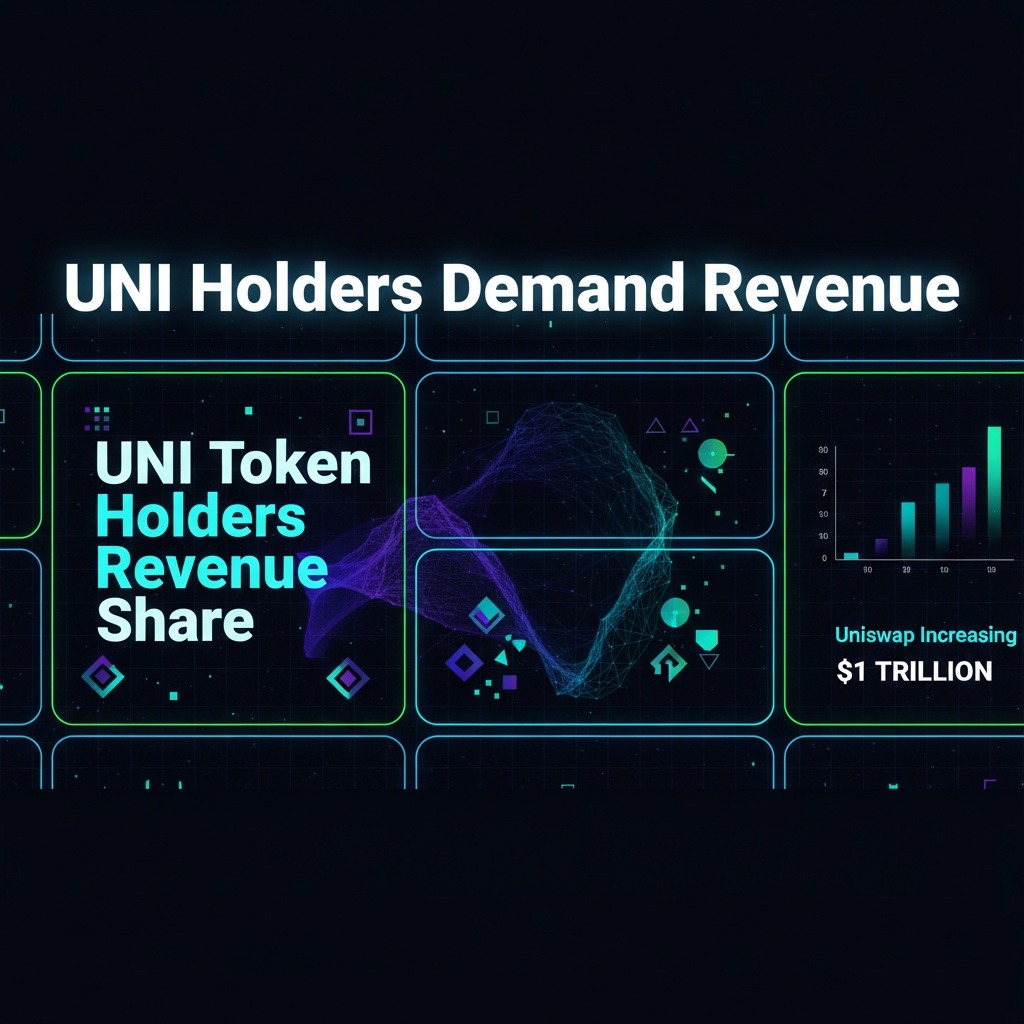Uniswap, the leading decentralized exchange by trading volume, is on the verge of reaching a staggering $1 trillion in annual trading activity. However, amid this remarkable achievement, holders of the UNI token are voicing their dissatisfaction with the lack of financial benefits they receive from Uniswap’s success.
This wave of discontent emerged following a social media post by Uniswap founder Hayden Adams on September 21, where he celebrated the platform’s record high trading volumes. Adams remarked on the persisting bearish sentiment in the community, citing the protocol’s latest metrics and boasting about their all-time highs.
Despite Uniswap’s impressive performance, the response from UNI holders was far from celebratory. The discourse quickly shifted to discontent as prominent figures in the crypto space expressed their concerns. Jeff Dorman, the Chief Investment Officer at Arca, criticized the UNI token, labeling it as “a complete nonsense token in today’s market.” He asserted that the Uniswap team needs to implement revenue distribution or buyback strategies, questioning the relevance of the token in its present state.
Crypto investor Mike Dudas joined the conversation, querying why UNI has failed to create substantial value for its holders, nearly five years after its Initial Token Generation Event (TGE). Many investors are keenly aware that most other major decentralized finance (DeFi) projects have found ways to return value to their token holders.
Trading at approximately $8.13 as of the latest reports, the UNI token is down significantly from its all-time high of $44.92 recorded in May 2021. This decline has only heightened the frustration of those holding the token as they look for ways to benefit from Uniswap’s current success.
The discontent among UNI holders also extends beyond mere frustration over revenue-sharing practices. Notable DeFi analyst jpn memelord highlighted a critical issue with the trading volumes themselves. According to their analysis, around 5% of the trading volume in Q3 on Uniswap’s Base version stemmed from a “honeypot network.” Such networks involve malicious smart contracts that create unsellable tokens, suggesting that a portion of the trading activity could be manipulated or not genuinely reflective of user engagement.
Since its launch in September 2020, the UNI token primarily functions as a governance mechanism, allowing holders to vote on important decisions regarding fee structures. However, the token has not provided any tangible economic benefits to its holders as of yet. A report earlier this year from The DeFi Report noted that over 99% of the value generated by Uniswap has instead accrued to third parties like liquidity providers and Ethereum validators, with the platform distributing over $4.5 billion in trading fees to liquidity providers since May 2020.
Uniswap Labs has also capitalized on this substantial trading activity by activating a fee for users opting to trade through its web interface, generating around $50 million in the first six months of its implementation. Cumulatively, Uniswap Labs has captured over $127 million in fees, yet UNI holders have received none of this revenue.
With calls for changes to the tokenomics of UNI growing louder, the Uniswap Foundation attempted to address these concerns earlier this year by exploring opportunities for UNI holders to stake their tokens. Nevertheless, as the platform continues to post record trading volumes without sharing those gains with its community, the future of the UNI token and its role in Uniswap’s ecosystem remains uncertain.
As the debate unfolds, it is evident that UNI holders are eager for concrete actions that align the token’s value with Uniswap’s ongoing success, as the community calls into question the long-established structures of decentralized finance.



